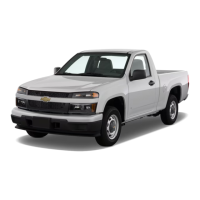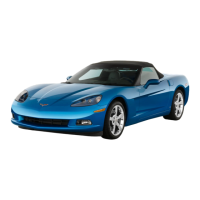Do you have a question about the Chevrolet Caprice 2011 and is the answer not in the manual?
Overview of the vehicle's instrument panel, including specific model configurations.
Overview of key features for initial vehicle operation and driving.
Details on various vehicle features like radio, steering wheel controls, and cruise control.
Information on traction control, StabiliTrak, tire pressure monitoring, and engine oil life.
Information on vehicle keys, remote keyless entry system operation, and manual/power door locks.
Details on the trunk, vehicle security systems, and immobilizer operation.
Information on adjusting and operating power and heated exterior mirrors.
Details on the manual rearview mirror, its adjustment, and compass display.
Operation of power windows, express-down feature, and rear window lockout switch.
Instructions for adjusting front and rear seat head restraints for safety and comfort.
Guidance on adjusting manual and power seats, including lumbar support.
Proper use, wear, care, and safety belt system checks for occupant protection.
Comprehensive information on airbag types, deployment, sensing systems, and safety precautions.
Guidance on selecting, securing, and using child restraints for infants and older children.
Details on accessing and using glove box, cupholders, sunglasses storage, and center console.
Description of steering wheel adjustment, controls, horn, wipers, and clock.
Explanation of various warning lights, gauges, and indicators on the instrument cluster.
Details on the Driver Information Center (DIC) and its various display menus.
Information on system messages displayed on the DIC for battery, brakes, engine, and fuel.
Customization options for vehicle features like lighting, locking, and remote start via DIC.
Controls for exterior lamps, including headlamps, parking lamps, and DRLs.
Operation of instrument panel illumination and dome lamps.
Details on entry lighting, exit lighting, and battery power protection features.
Introduction to the infotainment system, including safety warnings for driver distraction.
Explanation of the radio's security system and lockout procedures.
Diagram and labels for the infotainment system controls.
Instructions for radio operation, display brightness, startup screen, and factory settings.
Finding AM-FM stations, autoseek sensitivity, FM radio text, and manual tuning.
Information on CD player operation, disc formats, and care of CDs.
Overview of the dual automatic climate control system and its display bar.
How the system automatically controls temperature, air delivery, and fan speed.
Adjusting driver and passenger temperatures and viewing exterior temperature.
Setting climate control to single-zone or dual-zone mode for temperature control.
Changing airflow modes like Vent, Bi-Level, Floor, Defog, and Defrost.
Operating the air conditioning system, including recirculation and pollution mode.
Instructions for using the rear window defogger and warnings about cleaning the grid.
Displaying the outside temperature and adjusting units between Fahrenheit and Celsius.
Information on solar, interior temperature, and outside temperature sensors for climate control.
Adjusting air outlet vanes and tips for optimal airflow and operation.
Principles of defensive driving, expecting the unexpected, and staying alert.
Dangers of drinking and driving, its effects on driving ability, and alternatives.
How brakes, steering, and accelerator systems help control the vehicle.
Understanding braking action, reaction time, stopping distances, and avoiding heavy braking.
Tips for steering, including emergency steering maneuvers.
Procedures for recovering a vehicle when its right wheels drop off the road.
What happens when friction is insufficient for driving control systems and emergency actions.
Reducing traction on wet roads, hydroplaning risks, and rainy weather driving tips.
Maintaining alertness while driving on highways and tips to avoid fatigue.
Tips for driving on steep hills, including proper gear selection and braking.
Driving techniques for snow and ice conditions, including ABS use and cruise control.
Steps for freeing a stuck vehicle, including traction system use and rocking method.
Understanding vehicle weight capacity, load limits, and determining correct load capacity.
New vehicle break-in guidelines and ignition switch positions.
Hazards of carbon monoxide and precautions when running the engine.
Operation of the shift lever, park positions, and manual mode features.
Traction Control System (TCS) and StabiliTrak system functions.
Setting, resuming, increasing, reducing speed, and ending cruise control.
Recommended fuel types, gasoline specifications, and fuel additives.
General towing information and recreational vehicle towing notices.
Information and notices regarding add-on electrical equipment.
Importance of maintenance, dealer services, and vehicle operation factors.
When to perform maintenance tasks like engine oil changes and inspections.
Specifications for engine oil, coolant, brake fluid, and other vehicle fluids.
Forms for recording vehicle maintenance history, services performed, and dates.
Guidelines for performing DIY service work safely and using proper manuals.
Procedure for opening and closing the vehicle's hood.
Diagram and labels for major components in the engine compartment.
Importance of engine oil, checking levels, and selecting the right oil.
How the system indicates when to change engine oil and how to reset it.
Information on checking and servicing automatic transmission fluid.
When and how to inspect and replace the engine air cleaner/filter.
Details on the cooling system, checking coolant level, and adding coolant.
Identifying and responding to engine overheating, including steam warnings.
Checking and adding power steering fluid, including reservoir location.
What to use for windshield washers and how to add fluid, with warnings.
Information on disc brakes, wear indicators, and brake fluid.
How brake systems adjust for wear and replacing brake system parts.
Checking brake pedal height and identifying signs of potential brake service needs.
Understanding electrical system overload, fuses, and circuit breakers.
Information on tires, buying new tires, different sizes, and tire quality grading.
Understanding tire size, construction, and service descriptions on sidewall.
Explanation of tire size designations for passenger and light truck tires.
Definitions of tire terms like air pressure, aspect ratio, bead, and DOT markings.
Importance of correct tire pressure, effects of under/overinflation, and checking pressure.
Adjusting tire pressure for high-speed driving and heavy loads.
How the TPMS works, malfunction indicators, and sensor matching process.
Recommends inspecting tires for wear, damage, and when to replace them.
Importance of tire rotation for uniform wear and the recommended rotation pattern.
Identifying when tires need replacement due to tread wear or aging.
GM recommendations for selecting replacement tires with matching TPC Spec ratings.
Effects of non-original size tires/wheels on vehicle performance and safety.
Explanation of UTQG ratings for treadwear, traction, and temperature performance.
When to replace wheels, bolts, nuts, and TPMS sensors.
Warnings against using tire chains due to clearance issues and potential damage.
Tips for handling a tire blowout or flat, and what to do.
Procedure for removing the spare tire and tools, and changing a flat tire.
Proper storage of a flat tire, spare tire, jack, and tools to prevent injury.
Information and warnings about using a compact spare tire for temporary use.
Care and inflation of a full-size spare tire and its proper installation.
Safe procedures and warnings for jump starting a vehicle with a dead battery.
Guidelines for towing a disabled vehicle and recreational vehicle towing.
Tips for cleaning exterior lamps, lenses, and maintaining paint finish.
Cleaning upholstery, carpet, plastic surfaces, and safety belts with proper techniques.
Methods for removing dust and soils from fabric and carpeted surfaces.
Cleaning and care instructions for leather and lighter-colored leather interiors.
Guidelines for proper floor mat usage and removal/replacement procedures.
Importance of maintenance, dealer services, and factors affecting maintenance needs.
When to perform maintenance tasks like engine oil changes and inspections.
Specifications for engine oil, coolant, brake fluid, and other vehicle fluids.
Forms for recording vehicle maintenance history, services performed, and dates.
Location and information about the Vehicle Identification Number (VIN) and Service Parts Label.
Approximate capacities and specifications for the vehicle in metric and English units.
Steps for resolving concerns with dealership or Chevrolet if dissatisfaction occurs.
How to report safety defects to the US Government, Canadian Government, and General Motors.
Information on vehicle data recording, event data recorders, and RFID technology.
Details on standard options for Police Package and Special Service vehicles.
List of available SEO options for Police Package and Special Service vehicles.
| Brand | Chevrolet |
|---|---|
| Model | Caprice 2011 |
| Category | Automobile |
| Language | English |












